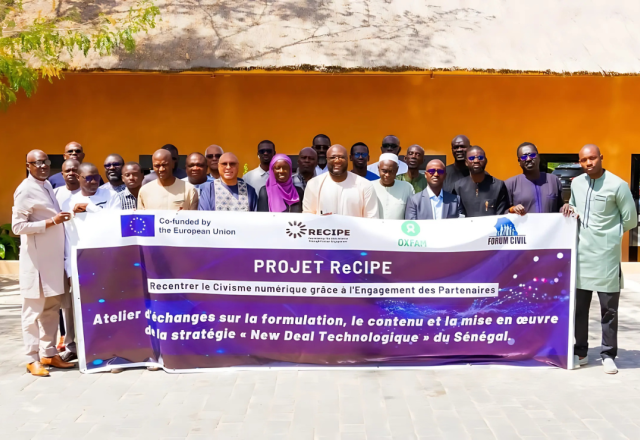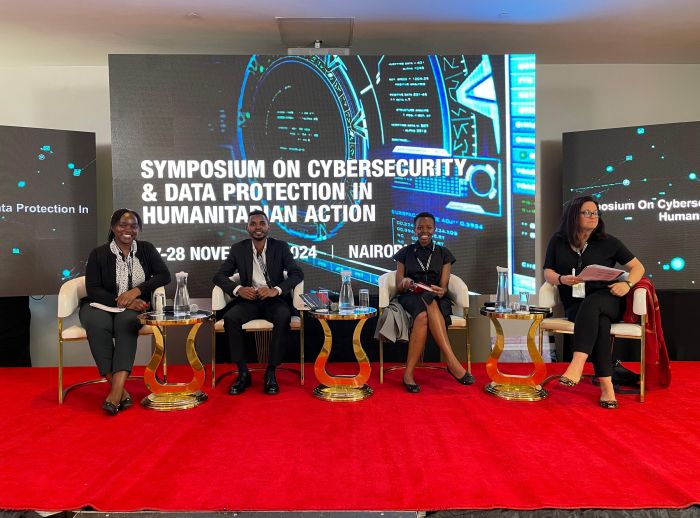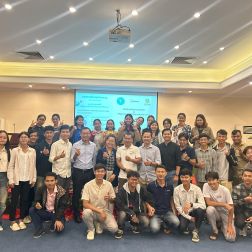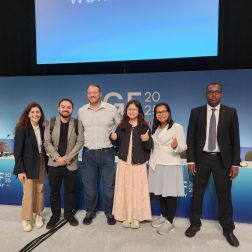
- 3 mins read time
- Published: 15th May 2025
Protecting rights in a digital age: what does this mean and why does it matter?
Have you ever received a strange email, a suspicious text, or a phone call that just didn’t feel right? Maybe you’ve landed on a website that looked suspicious and made you think twice before clicking anything.
A single click can put your personal data at risk, infect your device with malicious software, or even compromise your online accounts. And the problem is growing. A recent survey by Oxfam partner organisations, found that nearly half of respondents across nine countries had faced digital security issues in the past year.

As digital technologies are becoming more involved in our daily lives, digital threats are increasing. While digital threats impact everyone, some groups are far more vulnerable. These groups include journalists, activists, human rights defenders, as well as marginalised and oppressed groups. Oxfam partners’ survey found that 44% of respondents were targeted with online intimidation and threats of violence after engaging in activism or human rights advocacy.
The consequences of such threats can be severe. Digital threats against people in these groups affect their ability to fight injustice, inequality, and poverty, leaving marginalised and oppressed people even more vulnerable. With authoritarian governments increasingly using digital tools to silence and restrict social and civil movements, these risks are more urgent than ever.
Access to technology – and the skills required to safely make use of it - is another major issue. Oxfam partners’ survey highlighted that less than a third (28%) of respondents had received training on digital security and digital rights issues, like personal data protection. Without meaningful access to digital tools or skills, people are effectively shut out from the rest of the digital world, creating a new form of inequality. Digital inequality refers to the gap between those who benefit from technology, and those who don’t.
To build a safer and more equal digital future, solutions must come from governments, private companies, and civil society working together, while ensuring the voices of those most affected are heard.
Oxfam Ireland launched the ReCIPE (ReCentering the Civic Internet through Partner Engagement) project in 2024 to address these very issues. The project uses collaborative partnership with organisations in 10 countries to help increase resistance to digital threats, improve access to technology, and ensure that the perspectives of those most impacted by digital harm are central to policy discussions.

To build a safer and more equal digital future, solutions must come from governments, private companies, and civil society working together, while ensuring the voices of those most affected are heard.
Oxfam Ireland launched the ReCIPE (ReCentering the Civic Internet through Partner Engagement) project in 2024 to address these very issues. The project uses collaborative partnership with organisations in 10 countries to help increase resistance to digital threats, improve access to technology, and ensure that the perspectives of those most impacted by digital harm are central to policy discussions.
The goal? A digital future that benefits everyone, not just powerful tech billionaires.
Efforts like the ReCIPE project are a crucial step in the right direction, but the challenge of protecting rights in a digital age is far from over. As technology advances, so do digital threats. We must strengthen protections, build safer online spaces, and ensure those facing the greatest risks are at the centre of digital policymaking.
This week, leaders from government, private sector, and civil society will gather at the Ireland Internet Governance Forum (IGF) in Dublin to discuss digital policy and its real-world effects. These discussions need to prioritise our human rights and address the issue of digital inequality.
Oxfam Ireland’s CEO Jim Clarken will represent the ReCIPE project at the Ireland IGF while contributing to a panel on geopolitics and internet governance.
To learn more, visit the ReCIPE website.


